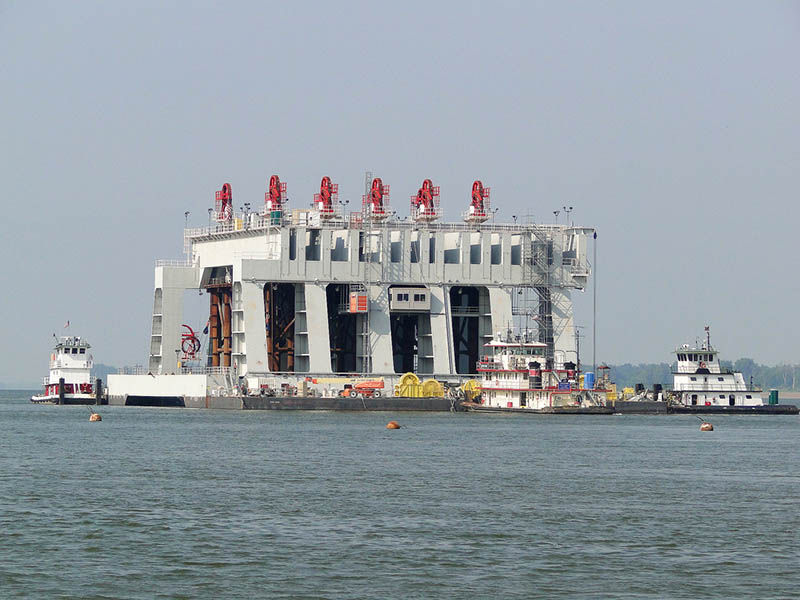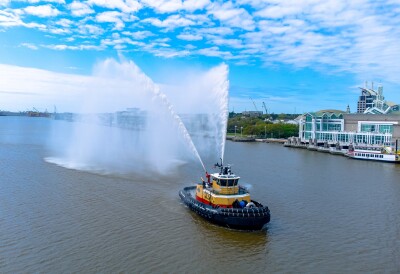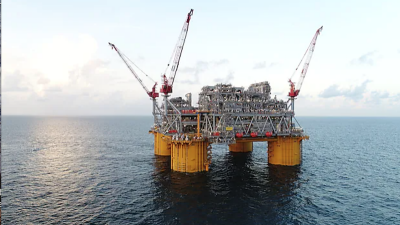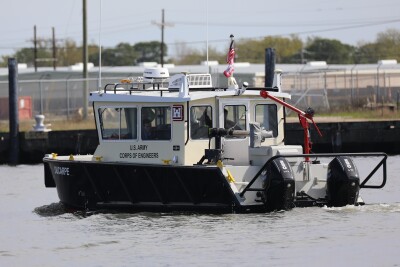The inland waterways have enjoyed two consecutive years of strong funding from Congress, which helped with the completion of the Olmsted locks and dam project in Illinois, and funding for other projects to improve efficiency of river transportation, Michael Toohey, president and CEO of the Waterways Council said at the International WorkBoat Show Thursday.
“We have been able to make $8.8 million in capital improvements so we can continue to compete internationally,” Toohey told Inland Waterways and Passenger Vessel Program attendees. “The world is coming to the United States (for its food supply), and we are preparing to feed the world.” Meeting this demand will involve modernizing the nation’s antiquated and unreliable system of locks and dams.

Michael Toohey
Progress has been stymied for decades by inconsistent funding from Congress and certain policies at the Army Corps of Engineers, but with a new funding direction, progress has taken a remarkable turn for the better.
Toohey said both the fiscal year 2018 and 2019 federal budgets for the Corps’ civil works programs, which funds waterways improvements, have hit record levels.
In fiscal 2018, the budget hit a record $6.85 billion, allowing for completion of the much-delayed Olmsted project and for improvements to the Lower Monongahela River in Pennsylvania, the Kentucky lock and the Chickamauga lock in Tennessee. The budget hit another record for the current fiscal 2019, with nearly $7 billion appropriated. In addition, record levels were made for operation and maintenance of the inland waterways system, and none of the budgets include a plan by the Trump administration to impose new taxes, fees or tolls on the barge industry.
Toohey said the 2019 budget also included an important change: a new cost-sharing arrangement to speed up the Chickamauga project from the current 50/50 split between the Inland Waterways Trust Fund and the federal treasury, to 85% federal and 15% trust fund. The barge industry supports the fund through a 29-cent-per gal. diesel fuel tax.
Assuring that the funds are spent on the waterways is a top priority because “there is a great temptation in Congress to spend trust fund money on other programs, and if we don’t advocate, that’s what will happen.”
Toohey said, however, that funding windfalls have a downside, as some locks and dams will close for improvements. In 2020 and again in 2023, the Illinois Waterway will shut for major repairs on six locks, which is expected to extend their lives for another 25 years.





